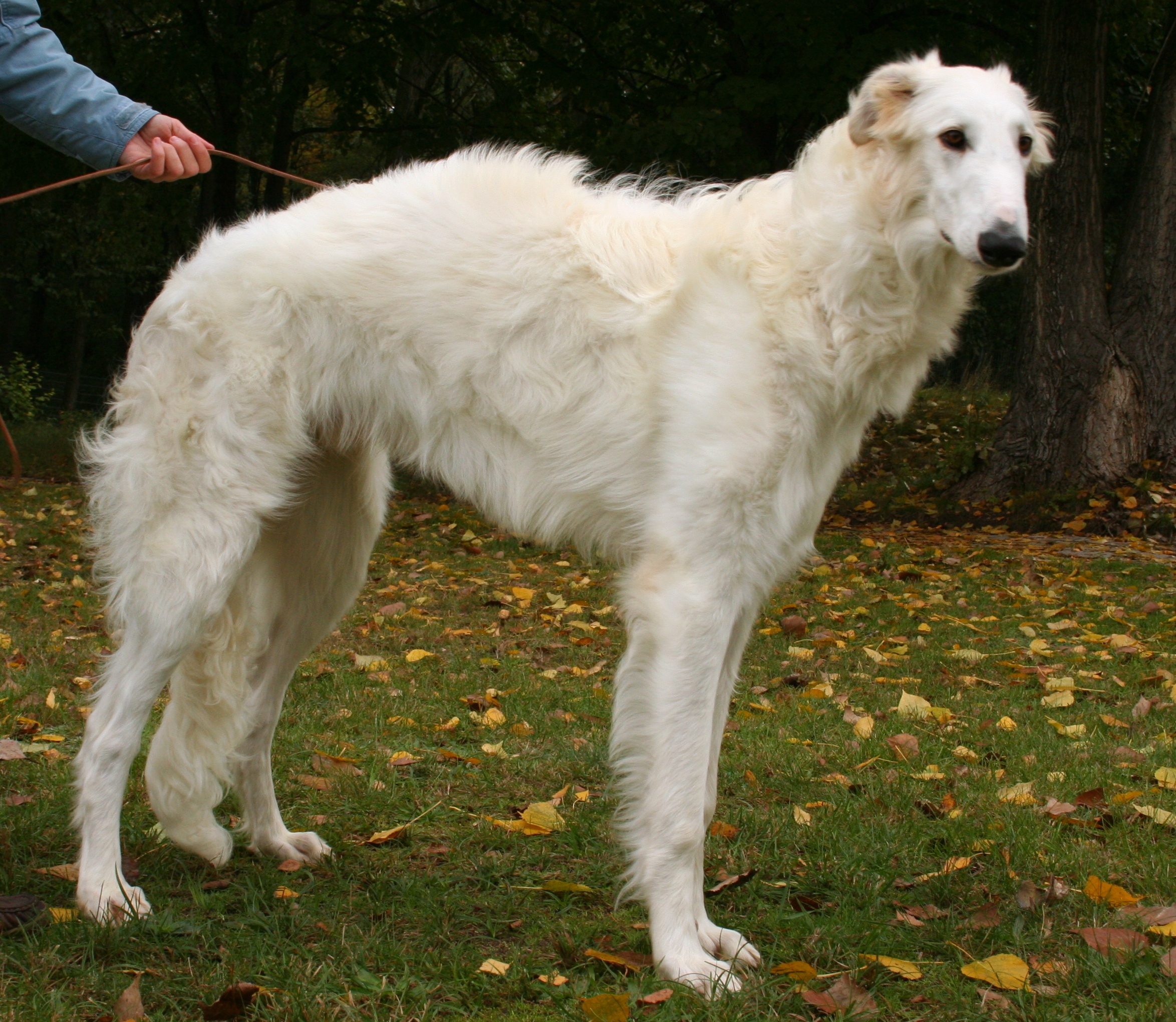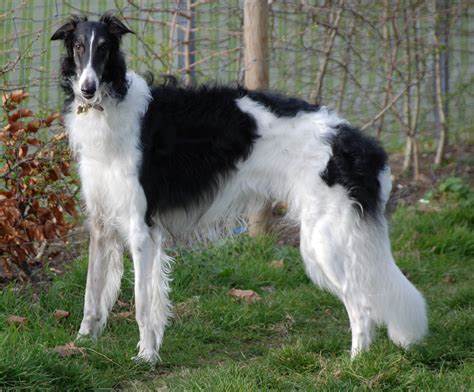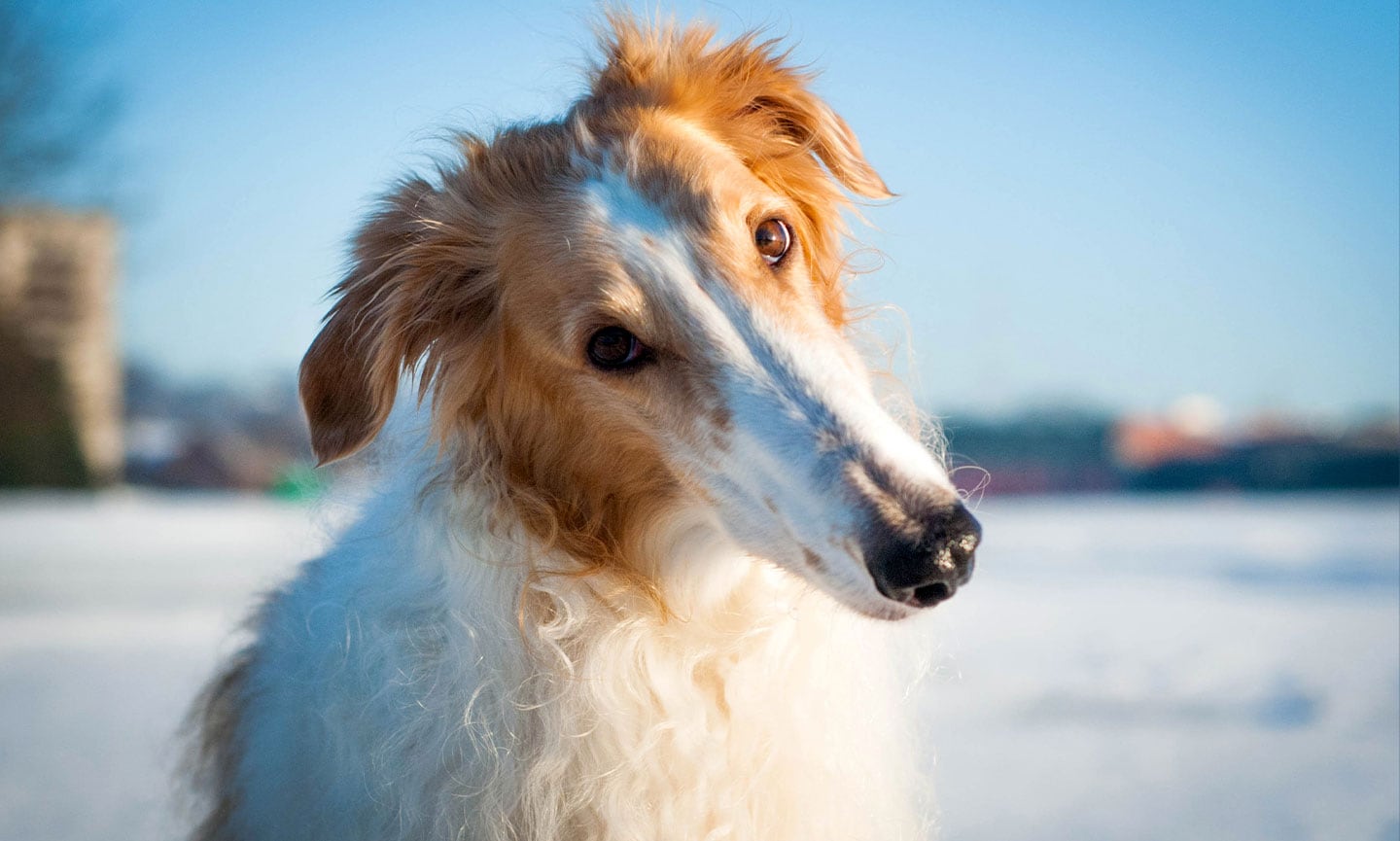
The Borzoi, also known as the Russian Wolfhound, is a regal sighthound breed originating from Russia, where it was bred by aristocrats for hunting wolves, hares, and other game in the vast open plains. The breed’s name, Borzoi, comes from the Russian word "borzyi", meaning swift—a fitting description for this fast and agile dog.
The Borzoi's development dates back to the 16th and 17th centuries, when Russian nobles selectively bred Arabian Greyhounds, Salukis, and native Russian sheepdogs to create a breed that could outrun and overpower wolves. They became a status symbol of the Russian aristocracy, and grand wolf hunts featuring Borzois were held by the Tsars and Russian nobility. After the Russian Revolution, many of these aristocratic dogs were nearly lost, but a few survived and were exported to Europe and the United States, ensuring the breed’s continuation.
Recognized by the American Kennel Club (AKC) in 1891, the Borzoi remains a symbol of elegance, speed, and grace, admired for both its hunting ability and companion qualities.
Though less common than other sighthounds like the Greyhound or Whippet, the Borzoi has a devoted following among enthusiasts of elegant, independent dogs. Their stately presence, quiet demeanor, and affectionate personality make them popular in dog shows and lure coursing competitions.
In modern times, the Borzoi has transitioned from a hunting dog to a gentle and noble companion, appreciated for its calm temperament and stunning appearance.
The Borzoi is a tall, slender, and athletic breed, built for speed and endurance.
• Coat: The silky, wavy, or slightly curly coat is long and luxurious, providing insulation in cold weather. Common colors include white, gold, black, brindle, and sable, often with patches or markings.
• Size: Males typically stand 28 to 32 inches tall at the shoulder and weigh between 75 to 105 pounds. Females are slightly smaller.
• Head & Expression: The breed has a long, narrow head with a slight curve, a long and tapering muzzle, and dark, intelligent eyes that give a dignified expression.
• Ears: Small and set high, the ears lie back along the head but become more erect when alert.
• Body: The Borzoi has a deep chest, long legs, and a gracefully arched back, designed for speed and agility. The plumed tail hangs low when relaxed and is carried higher when excited.
Despite its hunting background, the Borzoi is known for its quiet, dignified, and affectionate personality.
• Calm and Gentle: Unlike many high-energy breeds, the Borzoi is quiet and laid-back indoors, often content to lounge and relax.
• Independent and Intelligent: Borzois are highly intelligent but have an independent streak, making training a challenge for inexperienced owners.
• Fast and Agile: As a sighthound, the Borzoi excels at high-speed pursuits and needs a secure area to run safely.
• Reserved but Affectionate: They form strong bonds with their families but may be aloof with strangers.
• Not a Guard Dog: Though large, Borzois are not protective or aggressive, making them poor watchdogs.

For those seeking an elegant, calm, and athletic companion, the Borzoi is an excellent choice.
• Graceful and Beautiful: One of the most visually stunning dog breeds, known for its elegance and regal posture.
• Quiet and Well-Mannered: Unlike many large breeds, Borzois are gentle and reserved, rarely barking or causing a fuss.
• Great for Experienced Owners: They are independent and require patient training, making them best suited for experienced dog owners.
• Loves to Run: Ideal for owners who can provide a secure area for sprinting, such as a large fenced yard or enclosed field.
• Affectionate but Not Clingy: They enjoy companionship but are not overly needy or attention-seeking.
While relatively low-maintenance in terms of temperament, Borzois require proper exercise, grooming, and care.
• Grooming: Their long coat requires brushing two to three times a week to prevent matting, with increased grooming during seasonal shedding.
• Exercise: Though calm indoors, Borzois need daily walks and opportunities to sprint to stay healthy.
• Mental Stimulation: Engage them in lure coursing, obedience training, or interactive play to keep their minds sharp.
• Nutrition: A high-protein diet supports their athletic build, and portion control helps prevent obesity.
• Socialization: Early socialization ensures they remain well-adjusted and comfortable with strangers.
Borzois are a relatively healthy breed, but they are prone to certain genetic conditions.
• Bloat (Gastric Torsion): Like other deep-chested breeds, Borzois are at risk for bloat, a life-threatening condition. Feeding smaller, frequent meals and avoiding exercise after eating can help prevent this.
• Hip and Elbow Dysplasia: Though not as common as in some large breeds, joint issues can develop with age.
• Heart Disease: Some Borzois may develop cardiac conditions, requiring regular veterinary checkups.
• Progressive Retinal Atrophy (PRA): A hereditary eye disease that can lead to blindness.
• Sensitivity to Anesthesia: Like other sighthounds, Borzois have a low body fat percentage, making them more sensitive to anesthesia.

Compared to other sighthounds like the Greyhound, the Borzoi is taller and has a longer, more luxurious coat. While Greyhounds are faster in short sprints, Borzois excel in endurance running.
Compared to the Afghan Hound, the Borzoi has a calmer and more reserved temperament, whereas the Afghan is more playful and mischievous.
Unlike Dobermans or German Shepherds, Borzois are not protective and do not serve well as guard dogs.
The Borzoi is perfect for those looking for a quiet, independent, and graceful companion. If you have experience with sighthounds, a large fenced area for running, and patience for independent training, the Borzoi can be a wonderful addition to your home.
However, if you prefer a highly obedient, protective, or easily trainable dog, the Borzoi may not be the best fit. Their independent nature requires an owner who understands their unique temperament.
United Pet Club is here to help you find the perfect canine companion. Whether you're looking to adopt or connect with trusted breeders, we provide valuable resources to guide you every step of the way.
Explore our platform to learn more about Borzois, their history, and how to care for them. Contact United Pet Club today to start your journey with this elegant and graceful Russian Wolfhound!